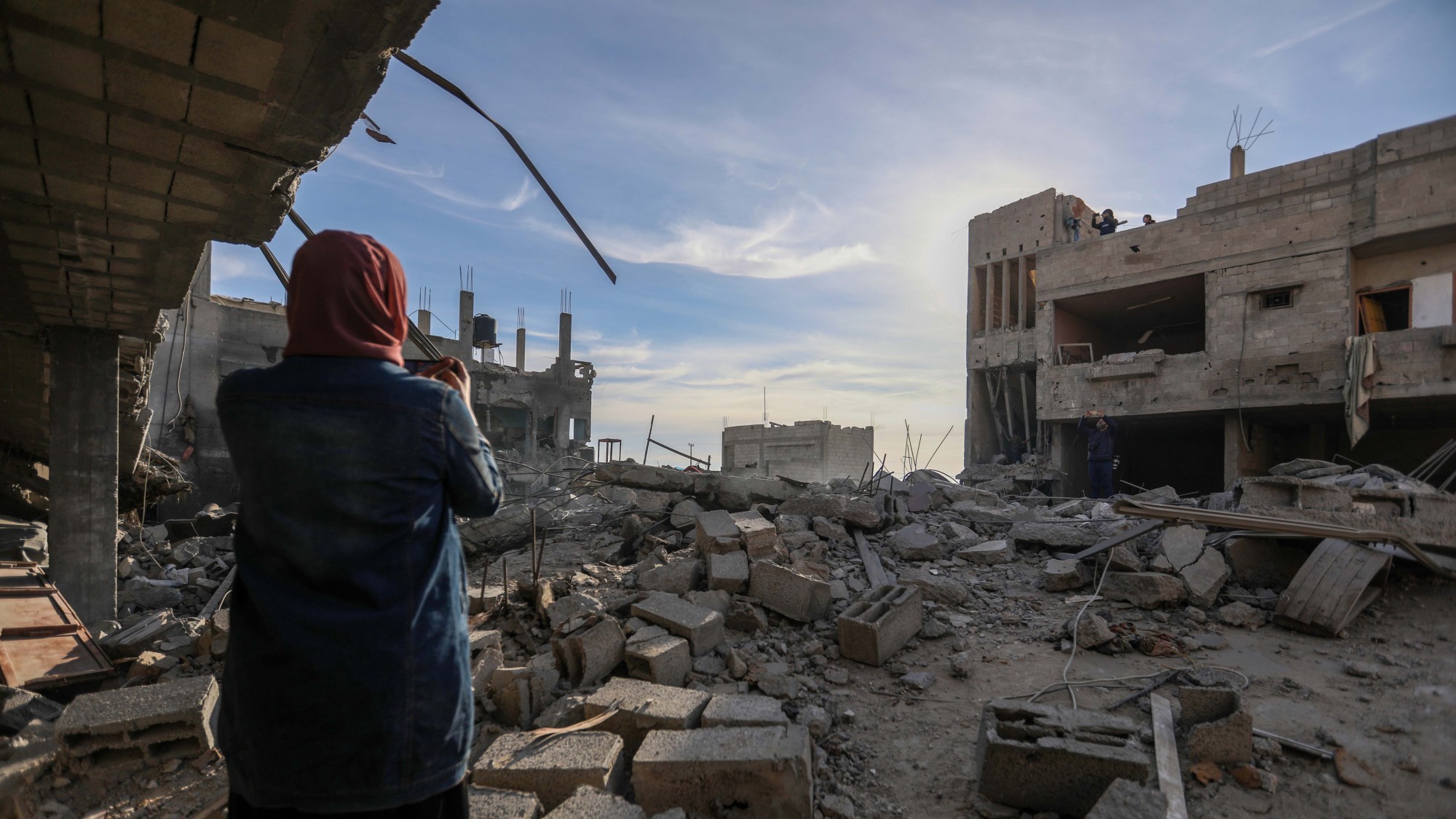What does Israel hope to gain from Rafah offensive?
Israeli ground troops have seized control of the border crossing to Egypt

A free daily email with the biggest news stories of the day – and the best features from TheWeek.com
You are now subscribed
Your newsletter sign-up was successful
Israeli ground troops and tanks moved into Rafah on Monday, and seized control of the vital border crossing into Egypt, which they later closed. The Israel Defence Forces had earlier ordered 100,000 people in eastern Rafah to evacuate ahead of what it said would be a "limited" operation there, and launched a series of air strikes that killed at least 19 Palestinians.
The strikes followed the killing of four Israeli soldiers by Hamas rockets at the nearby Kerem Shalom border crossing, which was then closed for several days. Israel's PM Benjamin Netanyahu says that an offensive in Rafah – where some 1.4 million Palestinians are sheltering – is necessary to defeat Hamas; aid groups warn that such an operation would worsen the dire humanitarian crisis in the Strip.
Stalled ceasefire
Hours before the offensive began, Hamas had announced that it had accepted the terms of a ceasefire deal drafted by Egypt, prompting celebrations in Gaza. Its terms are reported to have included a pause in the fighting for an initial 42 days to allow for the release of 33 hostages seized by Hamas on 7 October. Further hostages may then have been released in stages. In return, scores of Palestinians would have been freed from Israeli jails. The deal did not meet Hamas's demands for a permanent truce, but would have bound both sides to work towards a "sustainable calm".
The Week
Escape your echo chamber. Get the facts behind the news, plus analysis from multiple perspectives.

Sign up for The Week's Free Newsletters
From our morning news briefing to a weekly Good News Newsletter, get the best of The Week delivered directly to your inbox.
From our morning news briefing to a weekly Good News Newsletter, get the best of The Week delivered directly to your inbox.
But despite growing internal pressure on him to secure the release of hostages, Netanyahu rejected the deal, saying that it fell "far from Israel's requirements". One sticking point for Israel is reported to have been concerns that some of the 33 hostages cited by Hamas might be dead. However, both sides have returned to the talks.
President Biden reiterated America's opposition to a ground offensive in Rafah; the crossing there is the only one by which humanitarian aid can reach Gaza from Egypt. The UN said that a "full-blown famine" had now taken hold in northern Gaza. Last week, Washington paused a shipment of thousands of US-made bombs to Israel, the first time it has taken such a step since 7 October.
Calculated risks
While the Israeli delegation took part in the ongoing ceasefire talks in Cairo this week, the country's military was exerting a pressure of its own in Rafah, said Samer Al-Atrush in The Times. On Tuesday, Israeli soldiers "triumphantly raised their flags over the Gazan city's border crossing" and used a tank to mow down an "I love Gaza" road sign. By sending in tanks, Netanyahu intends to deliver a warning: "if Hamas does not compromise, the operation in Rafah will expand".
Israel knows that any major incursion risks angering the US and causing a massive loss of life, but it may have no choice, said The Wall Street Journal. Rafah hosts Hamas's military leaders, four of its six battalions and a border crossing used for smuggling weapons. Only when it is at risk of falling will Hamas – which rejected a generous ceasefire offer in April – finally negotiate in good faith to hand over its hostages and end the fighting.
A free daily email with the biggest news stories of the day – and the best features from TheWeek.com
Negotiating lines
"Nothing about the attack on Rafah and the negotiations in Cairo are quite what they seem," said Anshel Pfeffer in Haaretz. Israel's operation in Rafah has so far been limited, because it allows Netanyahu to reassure his hard-right coalition allies that the Rafah assault they've been demanding is still on the cards, while avoiding crossing what Biden has made clear is a "red line".
US officials say they're not sure if the Rafah offensive is being used to extract better terms from Hamas, said Julian Borger in The Guardian – or whether, in fact, the talks are just a smokescreen for Israel's military preparations. Netanyahu's hard-right allies "have threatened to bring down his coalition if he makes peace with Hamas and forgoes a Rafah assault".
But there is broad public support for an agreement in Israel, said The Economist; and the gap between the delegations in Cairo is not so great that a compromise cannot be reached. The question is whether Netanyahu is prepared to risk the consequences for his own career of accepting one.
What next?
Israel has encouraged the people ordered to leave Rafah to travel to Muwasi, a nearby coastal area that it says is equipped with healthcare facilities and materials for shelter.
But the area is already housing some 450,000 refugees, many of whom are living in squalid conditions, and the UN has warned that it is not equipped to deal with an influx of thousands more people fleeing Rafah. UN experts warned last week that the cost of reconstructing Gaza (and clearing 37 million tons of rubble) after the conflict could exceed $40bn.